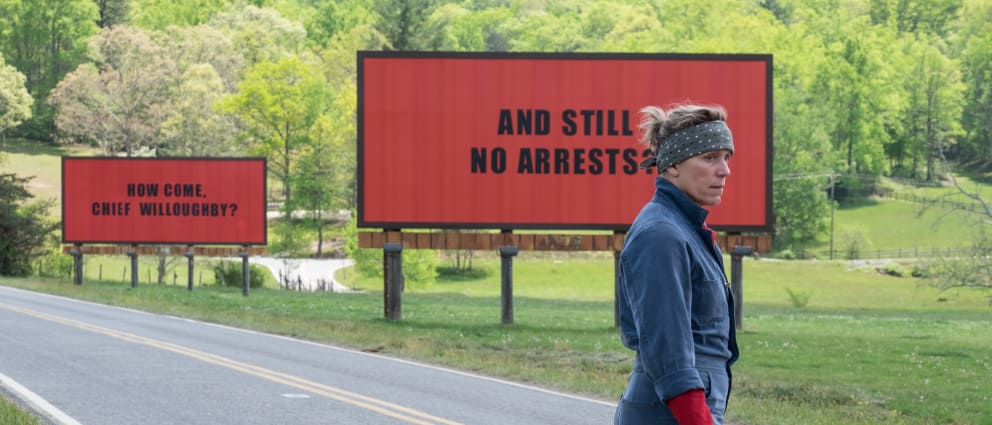Arts writer, Ananya Sriram, discusses the racial problems in ‘Three Billboards Outside Ebbing, Missouri’.
It seems that issues of race and its portrayal in film have become an integral part of the discussion surrounding the Oscars every year. Increasing focus is given not only to diversity in films, exemplified by campaigns such as #OscarsSoWhite, but also to the way in which the films treat and dissect race. Nowhere is this more prevalent than in Martin McDonagh’s Three Billboards Outside Ebbing, Missouri, which is perhaps one of the most controversial and polarising contenders for Best Picture so far. Following the story of grieving mother Mildred Haynes (Frances McDormand) as she strives to bring her daughter’s rapist and murderer to justice, Three Billboards has received widespread criticism for its treatment of Sam Rockwell’s character, Jason Dixon, a racist and belligerent cop who undergoes a moral transformation and is seemingly redeemed for his previous racial violence.
Critics have come at the film from all angles, some lambasting it for its assumption that a character who systematically abuses his power as a cop to enact racial violence can simply be ‘redeemed’ through his commitment to solving Mildred’s case. Others have argued that the film does not actually redeem Dixon or condone his actions in any way, but instead explores a softer, more empathetic side to him, and acts as a call for society to let go of its anger. It cannot be denied that the film is somewhat lazy and disjointed in its handling of race. Dixon’s racism is very much treated as a subplot, never engaged with head-on; we only learn about his alleged torturing of a black person in custody through offhand comments, never seeing the victim onscreen. Similarly, the black characters in this film are very much relegated to the background, only used as props with which to manipulate the white leads. This is the case with Denise, a black friend and co-worker of Mildred’s who is unfairly arrested by the police department in an attempt to get Mildred to take down the billboards. The disposability with which black characters are treated in this film is a testament to its misdirected efforts to preach tolerance. This is most evident in the fact that Dixon’s ‘redemption’ is not in any way an atonement for his racism, but simply a softening of his character, involving a renewed attempt to solve the case of Mildred’s daughter’s murder. This also begs the question of whether Dixon is actually redeemed in the first place, or if he just learns to let go of his anger and aggression. But at the end of the day, Dixon remains a racist cop, and the fact that the narrative never directly challenges this racism is one of its greatest faults.
The problem with Three Billboards is that it is a film which tries to do too much.
Taking on such a broad range of themes results in a half-hearted, directionless attempt to resolve the story, which leaves viewers far from satisfied. In the age of ‘Black Lives Matter’ the last thing we need is a Best Picture winner which subscribes to the woolly, non-committal idea that racism is a moral fault which can be absolved, and not an institutional system of oppression. It is 2018, and we can do better.
Ananya Sriram
(Image courtesy of Regal Cinemas)

